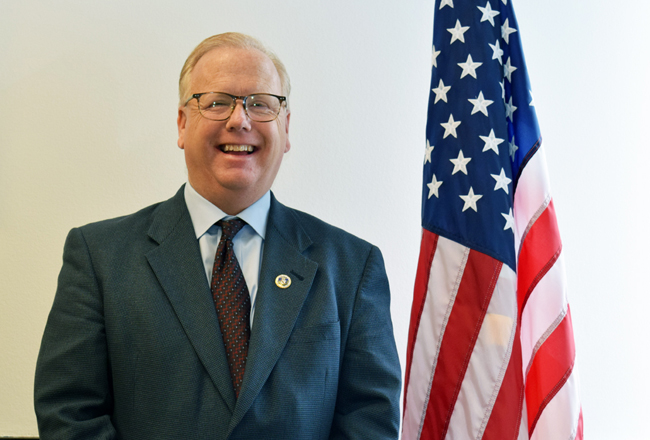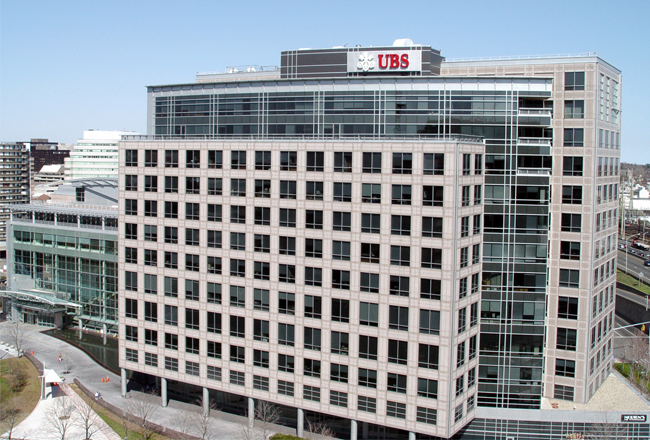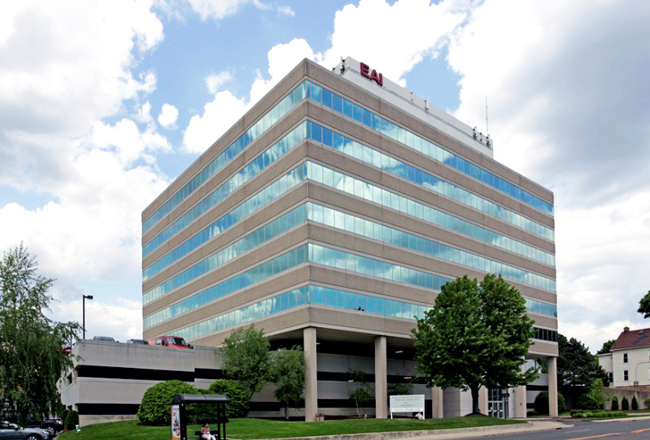Comedian Rodney Dangerfield used to draw laughs and applause from his catchphrase “I get no respect.” But Danbury”™s Republican Mayor Mark D. Boughton said it”™s not so funny to Connecticut”™s business community.

“As I”™ve traveled across the state, I”™ve heard from a lot of CEOs and like-minded business people,” Boughton told the Business Journal in an interview. “Corporate executives say, ”˜Look, we don”™t like that we are paying more taxes. But at least if we are appreciated for the fact that we do and for how we treat our employees and contribute to the economy, we would feel a lot better about it.”™”
Since becoming Danbury”™s mayor in 2001 and serving eight consecutive two-year terms, Boughton said that the encouragement of business growth and development has been a key focus. He points to the results of his effort by noting his city had “the lowest unemployment metric in the state” while adding another 300 to 400 jobs in the latest quarterly data. He also pointed out that Danbury added back 107 percent of the jobs lost as a result of the 2008 recession, while the state as a whole added back 74 percent of the lost jobs. Locally, the new jobs came exclusively from small and midsize businesses.
“The big Union Carbides of the world aren”™t really out there anymore,” he said. “They rarely move, if they do move at all ”“ the exception being GE. We decided locally that we want to facilitate small and medium-size business. We welcome multinational corporations, but at the end of the day the smaller shops with 20, 30 or 40 employees are the ones that keep our business working every day.”
One business that Boughton is not pursuing involves sports stadiums. Boughton pointed to the cost overruns at Hartford”™s Dunkin”™ Donuts Park as evidence that this is the wrong strategy for creating good-paying jobs. In 2004, Danbury voters rejected a proposed stadium for a minor league baseball team.
“Stadiums are not economic development,” Boughton said. “They are an amenity. They are quality of life that a city, town or county can enjoy. If you are building it for that reason, that”™s OK ”“ it is something the taxpayers can enjoy. If you”™re going to stand there with a straight face and say it will generate 200 jobs during the summer selling hot dogs and beer, you are better off spending $7 million on a job training center where people can find a good paying job. They are never a good deal for the taxpayers.”
A better measurement for economic strength, Boughton said, is a solid housing market. He pointed to an exodus of residents from across the New York border seeking less expensive housing in the Danbury-area as a main driver for the local economy, even though home prices are on the rise and affordable residential options are often elusive.
“We are probably the cheapest place to live in Fairfield County ”“ but it”™s still Fairfield County,” he said.
While balancing the duties of his office, Boughton is also working on two political campaigns: his re-election bid for November and a potential foray into statewide office next year. He already has an exploratory committee set up for the latter, although he is burdened by two earlier failed attempts to get to Hartford ”“ as the GOP”™s lieutenant governor candidate in 2010 and an aborted bid for governor four years later. And while he is no stranger on the Connecticut political circuit, he lamented it is more difficult to establish a household name and persona while seeking statewide office.
“I think the biggest difference is that you can”™t develop the personal relations that you can at the local level. I”™m campaigning here all of the time ”“ people stop and ask me questions when I go to the gas station, when I go to the grocery store or go for a walk with my dog.”
Actually, Boughton”™s dog wound up getting a fair amount of media attention when stories were published that the mayor was going to vote for his pet as a write-in candidate instead of backing the national Republican ticket. Boughton laughed and agreed that while the story was funny, it was far off target.
“On the ballot locally, we had a referendum question about building a new dog pound,” he said. “So, when I said I was voting for my dog for president, I was making a play off of that ”“ I wasn”™t really voting for my dog. I voted for Trump-Pence. Some people out there really think that I voted for my dog.”



















